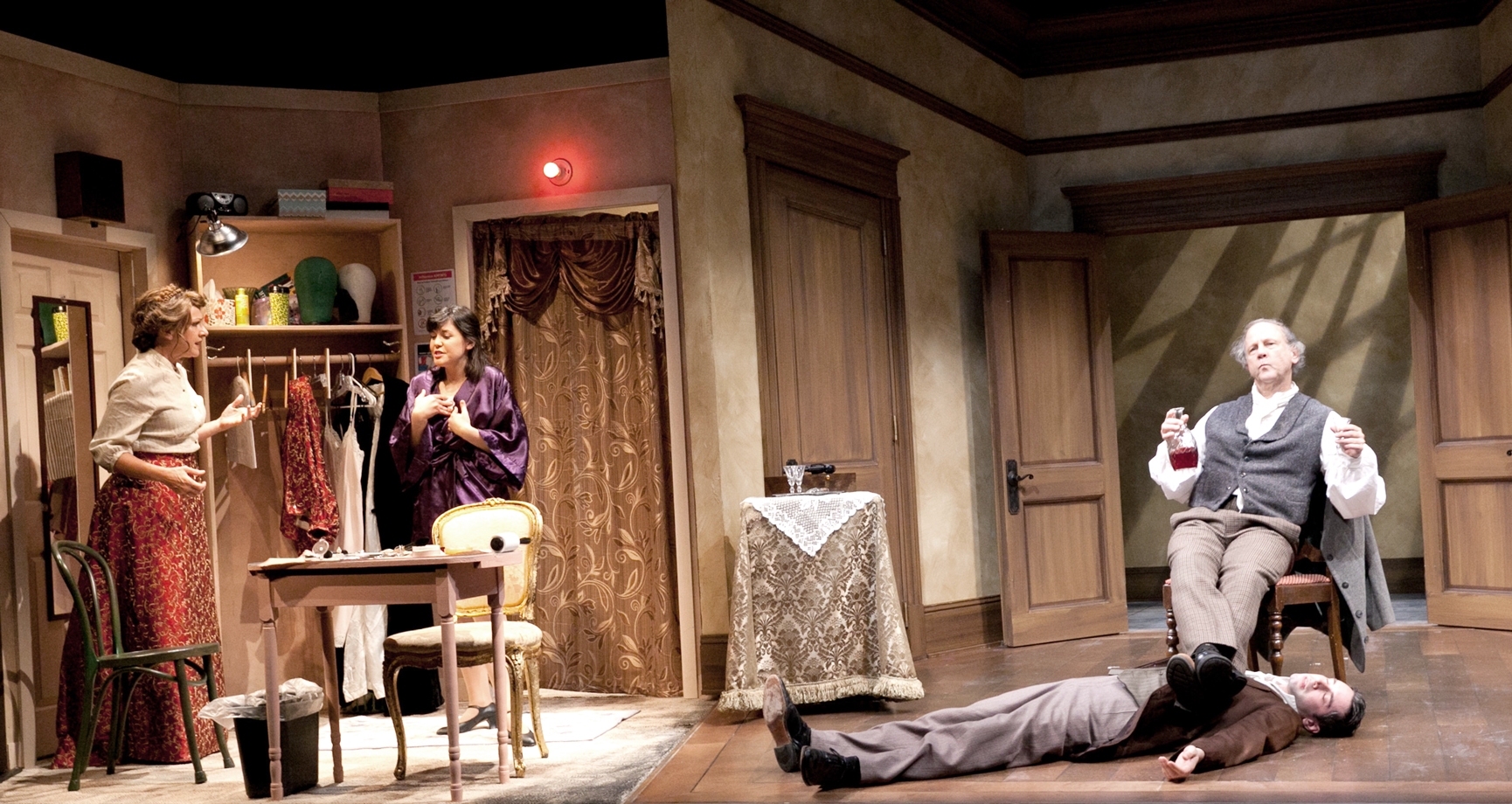
Carol Halstead, Zoë Winters, Andrew Pastides and Jim Ortlieb. Photo by Meghan Moore.
by John Kolvenbach
directed by Kyle Fabel
Merrimack Repertory Theatre
50 East Merrimack Street
Lowell, MA
November 29th – December 23rd, 2012
Merrimack Repertory Theatre Facebook Page
Review by Craig Idlebrook
(Lowell) It is frustrating to see a craftsman like playwright John Kolvenbach run rings around pedestrian writers. His play Half n’ Half n’ Half shows that he understands how a play functions on a deep level and that he could write in any genre he chooses, from The Seagull to Lend Me a Tenor. Kolvenbach toys with the audience in several genres with this comedy, while demonstrating his near-mastery of them all. This is more than an exercise in play writing, however. Throughout this script of multiple plays, Kolvenbach is able to document how a lifetime romantic commitment often drives us to need to be committed.
The action unfolds as husband-and-wife actors Loretta (Carol Halstead) and George (Jim Ortlieb) plow through three chestnuts of plays to raise enough funds to finally get a divorce. It would be a funeral march on the floorboards if not for the fact that their daughter Frances (Zoe Winters) and a young lion, Michael (Andrew Pastides), also part of the troupe, and want to stir things up. Frances is ambiguous about her parents’ impending divorce, except that she’s sick of them talking about and wants to see resolution. Michael has as much brains as tact and sees no reason to allow either to get in the way of pursuing romance within the family.
Much like Noises Off!, the play’s obvious reference point, the tension is played out both behind the scenes and on stage, as the characters cannot maintain their composure and choose to go off-script to disastrous results. Unlike the popular eighties farce, however, Half n’ Half n’ Half manages to meditate on marriage in a heartbreaking way through the three pseudo-scripts, and from this is where my envy springs. Kolvenbach and the cast manage to draw the crowd into two family dramas even when we have seen the strings attached, and we follow the created characters for their own sake, not just to see the actors divulge into silliness. In fact, it is the pure farce of a pseudo-script that works the least in this production, as if Kolvenbach gives too much of a nod to Noises Off! That may only be because we have invested in the characters to such an extent that it makes us wince to see them embarrass themselves.
Winters especially shines throughout the play as Frances, bringing brilliant pacing to her lines and infusing them with Janeane Garofalo-like weariness. She helps bring out the best in Ortlieb, providing George the impetus to strip away artifice on stage to fight for his marriage. Beneath the surface of farce, the cast uncovers the playwright’s message that marriage is something wonderful that we also must endure.
